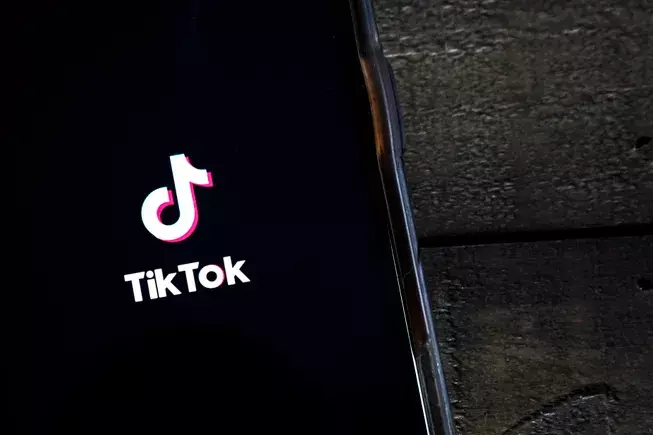The saga of TikTok in the United States exemplifies a broader geopolitical conflict that extends far beyond a simple social media platform. Despite initial claims of resolution, the app remains entangled in a web of legal, political, and economic uncertainties. The American government’s efforts to enforce restrictions and push for a sale have resulted in a paradoxical situation—TikTok continues operating in a gray area, technically in violation of U.S. law, yet still accessible to millions. This ongoing tension signals a deeper struggle for influence and control, reflecting the global power dynamics between the United States and China.
Under the surface, the push for TikTok’s sale reveals more than just concerns over data security; it uncovers fears regarding technological dominance and national sovereignty. The U.S. has long viewed Chinese tech giants as potential threats, and TikTok’s rapid growth presented a compelling case for urgent intervention. Nevertheless, while political leaders cite security risks as justification, the delayed negotiations and shifting deadlines expose the complexities involved, hinting at underlying economic motivations and diplomatic motives. The recent withdrawal of major partners like Blackstone exemplifies how fragile these arrangements have become, further complicating an already convoluted situation.
The Fluctuating Landscape of Deal-Making
The intended sale of TikTok’s U.S. operations has been marred by uncertainty, with numerous obstacles preventing a definitive resolution. Initially, the Trump administration aimed for a swift transfer of ownership, with a consortium led by major investors promising to meet stringent regulatory and security criteria. However, one of the key players, Blackstone, has recently pulled out of the deal, casting doubt on the viability of the entire arrangement. The prospect of a compromise rearises, yet the clock is ticking—only 59 days remain to finalize a deal under the latest extension.
This uncertain landscape underscores the volatility of high-stakes negotiations involving international technology giants and government regulators. The consortium’s envisioned structure—an American majority ownership with ByteDance retaining a minority interest—was supposed to satisfy U.S. concerns. But with major firms like KKR, Andreessen Horowitz, and Oracle still in the mix, shifting alliances threaten to undermine the entire process. The situation highlights how political considerations, market forces, and strategic interests are all vying for dominance, often at the expense of a clear resolution.
Implications for the Future of Digital Sovereignty
The implications of this ongoing saga extend beyond TikTok itself. The struggle over its U.S. operations symbolizes a wider fight over digital sovereignty, data security, and influence in the global tech arena. The app’s potential ban would set a precedent—either for a broader reshaping of how foreign technology companies operate within U.S. borders or for increased restrictions on digital platforms deemed security threats.
Furthermore, the broader context of U.S.-China trade tensions amplifies the stakes. The recent escalation in tariffs on Chinese manufactured goods suggests that TikTok is not merely a social media app but a pawn in a larger geopolitical chess game. If nothing else, the TikTok controversy exposes the fragility of cross-border tech investments and the risks involved in the strategic control of digital infrastructure.
The U.S. government’s repeated extensions of deadlines illustrate a hesitancy that could either be driven by political motives or genuine difficulty in crafting a stable solution. For TikTok creators and users, this uncertainty is a double-edged sword—while the app remains accessible for now, its future continues to hang by a thread. The outcome will inevitably shape how technological influence is contested in the digital age, with the battle lines drawn between national security priorities and global economic interests.
A Power Play, Not Just a Business Deal
The ongoing TikTok drama reveals more than a fight for market share; it’s an insidious example of how international politics influence everyday life. The app’s popularity amongst youth has made it a cultural phenomenon, but beneath the surface lies a battleground for influence, security, and sovereignty. The U.S. appears hesitant to fully ban TikTok, perhaps recognizing the risk of alienating millions of American users and stifling innovation. At the same time, Chinese authorities remain wary of losing control over a platform that has become a symbol of cultural export and technological achievement.
If the U.S. chooses to push forward with the ban, it sets a commanding precedent for digital protectionism. Conversely, if a deal materializes, it risks entrenching broader concerns about surveillance and foreign influence. Either way, the stakes are enormously high, and the outcome will resonate well beyond the realm of social media. This struggle exemplifies a modern form of geopolitical power play, where digital platforms serve as tools of influence, battlegrounds for control, and symbols of national resilience.
In these uncertain times, the only certainty is that TikTok’s fate remains a reflection of the shifting tides of global power. Whether it becomes a trophy of diplomatic victory or a cautionary tale of technological overreach hinges on how political leaders maneuver in the coming weeks—and whether the competitive urge to dominate the digital landscape can coexist with the principles of shared global progress.


Leave a Reply